|
The 2021 US Open came down to two players: Jon Rahm from Spain and Louis Oosthuizen from South Africa. Jon Rahm played well but needed to make a difficult birdie on the 17th hole and 72nd hole. He did and led by one stroke. Louis Oosthuizen could beat Rahm if he duplicated that feat or, worse, tied Rahm into a two-hole playoff. Golf is cruel since good, and bad things happen on the finishing holes of a tournament, which is typically 71st hole and 72nd hole. Rahm played these two holes flawlessly and put himself in a position to make two birdie putts to lead the tournament. The only player who could beat Rahm or tie him was Oosthuizen. Oosthuizen made two big mistakes from the tee that cost him the tournament. On the 17th hole, he hit his drive out of bounds. Oosthuizen had to take a penalty and proceeded to bogey the hole. If he had hit the ball on the fairway or even put the ball in the rough on the right side, he would have walked away, at worse, with a par. The one place he could not hit it was on the left, and that's where he hit his tee shot. This one mistake cost him the tournament. On the 18th hole, he hit a drive into the rough. He could not go for the green in two. He had to lay up and try to make an impossible eagle from about 70 yards out. He did get the ball close and birdied the hole and lost by one stroke. The final score indicates that it was very close. But it wasn't since the drive on the 17th decided the tournament. Once Oosthuizen hit it out of bounds, he had no chance to win. So what's the lesson here? You must get off to a great start that puts you in a position to win. This means in a tournament and even every hole you play. Rahm did that and won. Oosthuizen didn't and lost. To play well in golf, you must hit the drive in the fairway. Then you must hit the next shot on the green. If you do, then you can walk away with a par. But you are also putting yourself in a position to get a birdie. This sounds simple, but you will pay if you don't do that sooner or later. And this is what happened to Oosthuizen on the 17th hole. Oosthuizen played well, but it came down to one mistake. If he makes par on that hole, he would have most likely tied Rahm and anything could happen in a playoff. To win a US Open, you not only have to be a complete player, which all pros are, but you have to execute when it matters. That's what separates the winner from the rest. And that's why John Rahm is the 2021 Men's US Open Champion. He could execute on Sunday when others could not. That is the difference between winning and losing at a highly competitive event. ##### 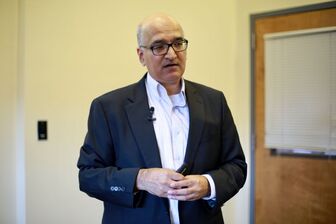 I guide people make money, grow money and acquire financial freedom. I do it by guiding people focus on thriving on high stakes stage whether it's for a job interview, career advancement, a sales presentation or a high-stakes speech. I wrote a practical, no-nonsense book on success titled Winning Speech Moments: How to Achieve Your Objective with Anyone, Anytime, Anywhere. The main idea of the book is that if you want to succeed in anything, you must create a winning speech moment. That is all people will remember. Just Do IT and WIN! To get started with executive coaching I offer Intro to Coaching program that consists of two sessions for $300 where I help people answer a simple, yet difficult question: Tell me something about yourself. You must nail this to make a good first impression. Let's get this right for you so you can get ahead. Get the Free Speech Checklist Email: [email protected] Phone: 732-847-9877 Time is Money, Communication is Wealth
0 Comments
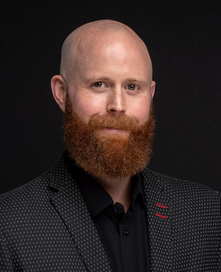 I highly recommend John P. Davis’ book “How to Get a Sales Job.” It is a short practical book that will give you confidence to do well in your next sales job interview. John can speak to this topic since he transitioned from working on Wall Street to take an entry level sales job. He brings a lot of depth and breadth to getting a sales job. Though John’s book is about getting a sales job, I think the book will help people get a non-sales-related job too. You still have to sell to get a job. And this book will teach you how to sell yourself to get a job. For those pursuing a sales job, this is a must-read book. After reading and studying this book, you will show up, stand out and likely secure an offer. You will have a conversation that will make you look like you know how to sell like a pro and drive revenue. Generating sales is a financial heartbeat of most organizations, especially those who engage in business-to-business (B2B) selling. Companies need competent sales professionals to grow. That means they need salespeople who can follow their sales process efficiently and effectively to drive revenue. John P. Davis’s book will help you look like a sales pro companies are looking for. The one thing the book emphasizes, which I wholeheartedly agree with, is that interviewing for a sales job is a proxy for doing your job. You must demonstrate your ability to follow the sales process by having a “sales process” to get the job. After reading this excellent book, I had a lot of questions for John. I narrowed it to five and sent it to John. Below you will find his answers to my five questions, and he also included three books that have influenced his thinking. I want to thank John for taking time out of his busy schedule to answer the five questions and provide valuable information to those who want a sales job. Disclaimer: I did not receive a copy of the book from the author. I purchased my own copy. Five Questions Question 1: When someone wants to switch to a sales job, what kind of questions should one be asking to know whether one is cut out for sales? Perfect question to start. I highlight a lot of this in the first chapter of my book because it’s so common for candidates. Two types of questions come to mind. The first type relates to your compensation. Are you willing to take a pay cut in your base? Do you understand how the commission will work? Do you think you can outperform your peers? Are you willing to start at the entry-level and work your way up? When answering these positively, you start to feel confident that you can make a successful shift into sales. But that’s also when the fear kicks in. You start to wonder why you’d put yourself through such a significant change. You contemplate risk and reward. It’s a lot to digest on your own and difficult to make your decision based on money alone… which brings us to the next type of question. The second type of question is related to your quality of life. Are you done with a 9-5? Do you want to work from home? How cool would it be to take customers to sporting events? Do you want to make your own schedule? Are you tired of working holidays? I found that the quality-of-life questions drove me into sales more than the compensation. Yes, I wanted to make more money, but I wanted a change of pace. I was done with the office, rush hours, and routine. I saw sales as an overall better lifestyle. This dynamic alleviated my fear of pursuing sales because I saw certain rewards outside of pay. The life of a sales professional is unlike any office job out there. It’s hard to resist. Ask yourself these types of questions and see if you’re ready for sales. Question 2: When someone is interested in making the switch to sales, how should one answer the lack of sales experience? Too many candidates dwell on their own lack of sales experience. They cite it as a reason for not getting into sales, and it’s the first thing an interviewer will dig into. However… Everyone has sales experience. This is the first thing that I teach my clients. Some experience is more obvious than others, but it just takes a bit of critical thinking to figure it out for yourself. Hiring managers are looking for people who have prospected a target group of people, set up a series of meetings, presented pricing, and negotiated contracts. That’s it. If you sold magazines door to door in middle school, you have sales experience. If you run the front desk of a gym, you have sales experience. If you drove for Uber, you have sales experience. Take your time to identify your own experiences. After that, it’s your job (and your job alone) to convince a sales manager that this experience is transferable. The best way to do this is to stress your ability to learn and your coachability. If you convince someone you have even minimal sales experience and that you’re coachable, you’re halfway home. One thing I’ll say is this – do not ever let someone tell you that you have no sales experience. I was told in an early interview that I’d never sell anything. I did not let that stop me. It was just an inexperienced manager looking for a rep in the late stages of their career instead of a younger and more eager rep to coach. Question 3: Do you recommend that if someone wants to work in sales, don’t apply for a job but instead make a cold call or use LinkedIn as if prospecting? Should one show how they would sell by the way they interview from prospecting to close? I talk about this a lot in my book. There is a full chapter on preferred Contact Methods. This is so important, especially if you want to work for a top-notch sales manager. The best sales managers want to see you in action. They will not read the applications that come in through the company’s website. This is like if you’re trying to sell something to Apple and you fill out a “Vendor Inquiry” form on Apple’s website. You’ll never hear back. Instead, choose the path of action. Demonstrate that you can reach out cold. Demonstrate that you can earn, book and set up a formal meeting. Demonstrate your phone skills and email etiquette. Demonstrate a close. All of this can be done by using LinkedIn, email, and the phone. Relying on a website application may get you an interview or two, but they’ll mostly be with the lethargic sales manager who is looking for a candidate at a good company as opposed to a candidate with a willingness to hunt for new business. I prefer action overreaction all day, every day. Question 4: If you run a word cloud generator of what the salesperson says in a job interview (both phone and in-person), what five words should show up as having the highest weight? Customer Relationship, Hunter, Motivated, Hungry, Quota. These five words pop up most. Everyone that I interview talks about how good they are at maintaining customer relationships. This is an interesting point because I don’t care as much for how good you are with customers… I care about how good you are at finding prospective customers. There’s a big difference. Hunter, motivated, hungry… everyone says these in an interview. The problem is that they just repeat them over and over again. Actions speak louder than words. I once had a cold call from a candidate who asked me within 5 minutes if I’d accept an in-person interview. That same candidate tried to close me for the job in the next 5 minutes over the phone. The whole conversation lasted 10 minutes, and I almost hired him. I ended up hiring him later, but the thing is – he didn’t have to stress that he was a hungry, motivated hunter. He demonstrated it to me. Demonstrate these things. Don’t just say them out loud. Quota: Everyone tells me they are over quota or crushed their quota. That is great. Some people talk about it too much. There is a lot to say about quota… if you’re smashing it, why are you leaving? If you are way under quota, why bring it up? My advice on quota is twofold - always tell the truth and get specific. I’ve interviewed reps at 200% of quota who had 1 deal that their manager gave to them when they joined the company. It would happen with or without them. I’ve also interviewed reps at 50% of quota who did 15 transactions on their own from start to finish. This is more impressive in my mind. So just tell the truth and be specific about your sales activity related to quota and less specific about the percentage itself. Question 5: Bank of America is no longer requiring broker trainees to make cold calls which have been a fundamental part of a sales job in the past. The reason for this change at BofA is that no one picks up the phone anymore. So what prospecting skills do salespeople need today to succeed? What have you found to be the most effective way to prospect today? Sales reps don’t call people. They get nervous, they hate it, they think people don’t answer, they don’t know what to say, they post articles on LinkedIn. There are 50 other reasons why reps don’t call people. I hear it all day long. Sales reps just don’t call people anymore. The worst reason is that they “have too many deals in play.” The majority of them use this as an excuse not to cold call. So Bank of America is technically correct. No one picks up the phone anymore. But it’s the sales reps who are at fault, not the prospects. There is no secret sauce here. Prospects still pick up the phone so you still need to call people. Use email as a tool to bring attention to your call. Use LinkedIn to do the same. Use marketing where necessary. But pick up the phone. It works. In an emergency, would you send an email? No, you’d call. My quota is always an emergency, so I call. I will leave you a few key points on cold calling. · Emails can be forwarded around the company, so be careful about sending the wrong message. · Cold calls cannot be forwarded, so it’s okay to mess up. · You get more and better information when calling versus emailing. · People like to talk on the phone. Three Book Recommendations My first recommendation is for anyone in sales or anyone looking to get into sales is “New Sales Simplified” by Mike Weinberg. I have read it a few times, and I always give a copy to the business development rep on my team. It’s the #1 book out there for finding new business and filling the top of your pipeline – frankly, the only thing that matters in sales. And Mike Weinberg is tremendous. Look him up and get his book today. My second recommendation is “Shoe Dog” by Phil Knight, the founder of Nike. This is a tremendous story of sales, hustling, and business. He was selling Nike’s out of his basement and competing globally with Adidas. You won’t be able to put it down, and it will help motivate you to do more. The third recommendation is “Atlas Shrugged” by Ayn Rand. This is not for the weak of heart. It’s wicked long… but packs a powerful punch. It’s about being productive and why that matters. What John is Working On He is currently working directly with former professional athletes and graduating D-1 student-athletes interested in entry-level sales. Reach out to him for more information, especially if you are an athlete, league representative, or coach. He can be reached at [email protected]. Resources Please listen to John P. Davis’ appearance on the podcast “Sales Enablement” with Andy Paul: https://www.ringdna.com/podcasts/how-to-get-a-sales-job-john-p-davis-episode-911 Please check out John P. Davis’ article on Sales Hacker: https://www.saleshacker.com/how-to-interview-for-sales-jobs/ Please check out John P. Davis’ article on Sales Vane: https://salesvane.com/sales-job-looking-for-the-highest-paying-job-in-the-world/ Contact Info Email: [email protected] LinkedIn: linkedin.com/in/john-p-davis-548a7b22 ##### 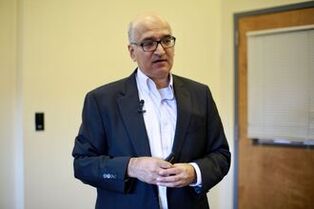 I guide people make money, grow money and acquire financial freedom. I do it by guiding people focus on thriving on high stakes stage whether it's for a job interview, career advancement, a sales presentation or a high-stakes speech. I wrote a practical, no-nonsense book on success titled Winning Speech Moments: How to Achieve Your Objective with Anyone, Anytime, Anywhere. The main idea of the book is that if you want to succeed in anything, you must create a winning speech moment. That is all people will remember. Just Do IT and WIN! To get started with executive coaching I offer Intro to Coaching program that consists of two sessions for $300 where I help people answer a simple, yet difficult question: Tell me something about yourself. You must nail this to make a good first impression. Let's get this right for you so you can get ahead. Get the Free Speech Checklist Email: [email protected] Phone: 732-847-9877 Time is Money, Communication is Wealth The 2021 Women's US Open Golf Tournament had a lot of drama. It had Lexis Thompson, who looked flawless halfway on Sunday. At one point, she was leading by five strokes and looked like a sure winner. Philippine's Yuka Saso, playing with Thompson, looked like she was out of the tournament at one point. But in golf, especially the US Open, anything can happen. And happen it did. Thompson stopped looking flawless, and Yuka steadied her game. Saso fought her way back and got into a playoff and then beating Japan's Nasa Hataoka in the playoffs to win the Women's US Open. I think three things were responsible for her win: 1) Copy a great player 2) Stay calm 3) Trust the process Copy a Great Player During the broadcast, the announcers on the Golf Channel compared Yuka Saso's swing to that of Rory McElroy, a great player on the men's tour with four majors. From watching the tournament, it was obvious that Saso had a very good repeatable golf swing. To succeed in golf, one needs a solid swing that is repeatable under pressure. And Saso showed this at the end that her swing was well-honed for a major golf tournament. Saso has never met McElroy, yet from watching the videos, she has replicated her swing that is a carbon copy of McElroy's swing. Now we can all do this when it comes to writing, speaking, acting, etc. You just have to reverse engineer it and then see what works and how you can do the same. I think this is an excellent way to become a good speaker. People who are great at what they do tend to be very open about what they do. You just have to dissect it and make it your own. That is what winners do. Don't try to figure it out yourself. That is not how greatness works. Stay Calm Saso did not play well in the beginning on Sunday but remained calm. She did not get flustered seeing her opponent was running away with the tournament. Saso could not do anything about Thompson's performance; she could only control her performance. A winning professional in any situation knows how to stay calm when things are not going well. You do not want emotion to take over your objective on what you have to do to win. Winning does not care that your feelings are hurt, or you hit a bad shot. Winning does not care what you think. Winning only cares about winning. You just have to learn to deal with this and become a winner. Trust the Process When Saso was interviewed after she won, she kept saying that she just trusted the process. This indicates that she was well trained mentally. Saso knew she would encounter difficulties but must stick to the process that got her to the US Open and in the final pairings. She did stick to the process and won. In golf, Winning cares only about who posts the lowest score. You just have to trust the process that will get you that score. You can't abandon what you have done for hours, days, months and years when it matters. You have to stay faithful to the process and then see if you need to refine it, if necessary. Sometimes you can do everything right and lose. Occasionally, you can do a lot of things wrong and win. This is life. Just get over it and see if anything went wrong with your process. If not, continue to trust it. Saso won one of the most prestigious tournaments. We all can learn from how she did it and succeed in something prestigious in our profession. ##### 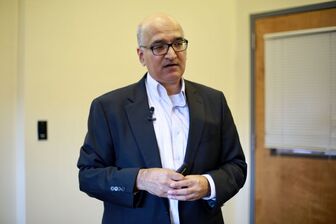 I guide people become independent by making money, growing money and having FU money. If you crave independence, then you should contact me. I focus on thriving on high stakes stage whether it's for a job interview, career advancement, a sales presentation or a high-stakes speech. I wrote a practical, no-nonsense book on success titled Winning Speech Moments: How to Achieve Your Objective with Anyone, Anytime, Anywhere. The main idea of the book is that if you want to succeed in anything, you must create a winning speech moment. That is all people will remember. Just Do IT and WIN! To get started with executive coaching I offer Intro to Coaching program that consists of two sessions for $300 where I help people answer a simple, yet difficult question: Tell me something about yourself. You must nail this to make a good first impression. Let's get this right for you so you can get ahead. Get the Free Speech Checklist Email: [email protected] Phone: 732-847-9877 Time is Money, Communication is Wealth |
AuthorJay Oza Archives
July 2024
Categories
All
|
© 2017 Winning Speech Moments


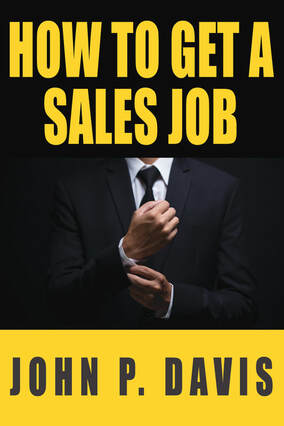

 RSS Feed
RSS Feed